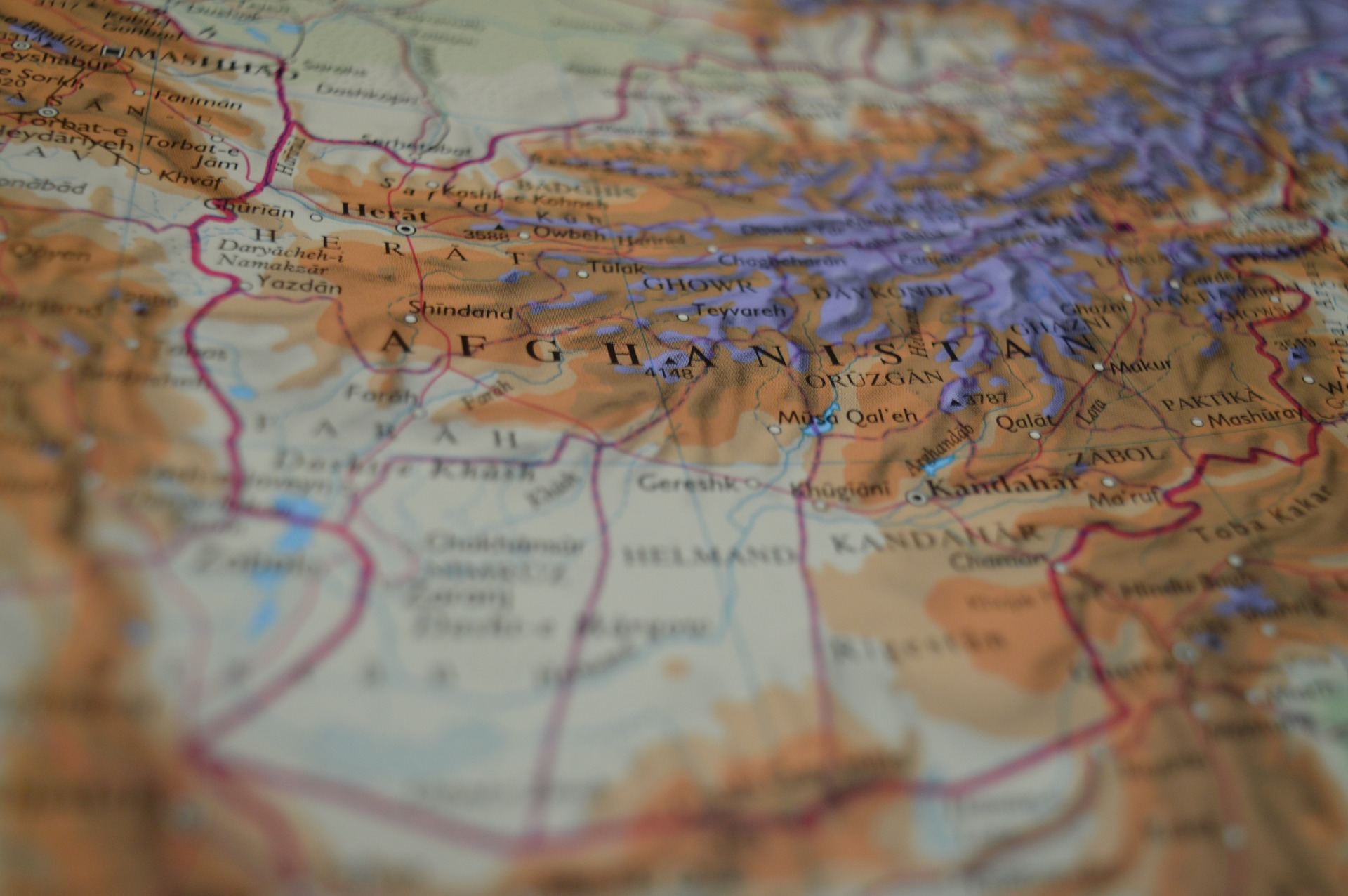
On Tuesday, September 10, Nasir Ahmad Andisha, ambassador of the Islamic Republic of Afghanistan to the Commonwealth of Australia, New Zealand, and the Republic of Fiji, visited the Bush School of Government and Public Service at Texas A&M University. Andisha graduated from the Bush School’s Master’s Program in International Affairs in 2009.
Andrew Natsios and Dean Ryan Crocker, former US ambassador to Afghanistan, Iraq, Syria, Pakistan, Kuwait, and Lebanon, gave a warm welcome before Andisha’s lunchtime talk to students and faculty.
Crocker said when he met Andisha at the Bush School back in 2009, he was amazed at the caliber of students the School could attract.
“Being here is like coming back home,” Andisha said. “This is a place where the noble call to public service is understood. [Students] will not regret coming here.”
Andisha’s talk consisted of a discussion of current trends and future challenges in Afghanistan – including positive and negative measures of progress over the past decades. This was followed by a presentation of his research, entitled “Desirability and Feasibility of a Policy of Neutrality in Afghanistan.”
Speaking on foreign policy in an interview prior to the talk, Andisha said the issue of Afghanistan should not be looked at only from the viewpoint of 2001. “It’s an old country – 5,000 years of history and 5,000 years of problems,” he said. “If you want to turn [the country] around, you have to do a whole bunch of things.”
“We need a generation of change,” Andisha said. “My generation – we are a generation of bridge-makers, from the old generation of warriors with less educational opportunities to the upcoming generation.”
Andisha is very grateful for his opportunity to come to the Bush School.
“I came to the Bush School as a Fulbright Scholar. You have a choice as to where you study. I started off in Monterrey, but then I had a choice to go to either Columbia or the Bush School, and I picked the Bush School,” Andisha said. “I had already interviewed with Dr. Gawande and Ambassador Napper, and I knew it was the kind of place I wanted to be as a mid-rank Foreign Service officer.”
“It is a professional school – a school where you get a good fusion of academics and practitioner experience.” Andisha said it was the perfect place to be.
“Coming here was really a turning point in my career as a diplomat. Coming in to the School, I knew what I needed. There are few people in Afghanistan with recent experience in the US,” Andisha said. “Not many people have gotten to do what I did here. I traveled around the US and talked to many people, such as former ambassadors, generals, colonels, and even former President Bush. Those kinds of experiences were what our foreign ministry wanted back in Kabul.”
While at the Bush School, Andisha focused on the international economics and development track with concentrations in trade policy and economic development.
In regards to his favorite courses at the Bush School, Andisha said, “You should ask me which ones were not my favorites.”
“They all matter and fit into the puzzle. Even quantitative courses are important because they can open you up to a whole different field of study later on,” Andisha said. “Leaving the Bush School, we are generalists – we know something about everything.”
No matter what the primary field of study is, Andisha recommended students cross over and take a course or two in the other program to help broaden perspective. Later on, students will not have time to learn as many new things, so they need to learn while they can.
Upon graduating from the Bush School, Andisha returned to Kabul, where he resumed work for the Ministry of Foreign Affairs as the director general of the Fifth Political Division (US, Canada, Australia, and New Zealand) from 2009 to 2011.
When asked for his advice for current Bush School graduate students, Andisha recommended students take their language learning opportunities seriously and really try their best.
“You have so many opportunities for exposure to other cultures and to have a regional focus in the coursework. You also have the chance to learn leadership skills through the leadership program,” Andisha said.
“Make use of all the great people you have here,” Andisha said. “Ask questions of them. Talk to them. There is not always going to be an Ambassador Crocker, Andy Card, or Ambassador Natsios around,” he added.
“Just talking to these people is enough to learn as much as you would from a month’s worth of study in books,” Andisha said.
Prior to attending the Bush School, Andisha was the director of Multilateral Economic Relations and International Financial Institutions from 2006 to 2007. Earlier, he worked as the chief of staff for the deputy foreign minister. He later finished an advanced security studies diploma from the Marshall Center for European Studies in Garmisch-Partenkirchen, Germany, and Asia Pacific Center for Security Studies in Hawaii, USA.
Before joining the Foreign Service, Ambassador Andisha worked with the International Committee of the Red Cross as a field officer. He also taught international relations and principles of economics at the Institute of Diplomacy of the Ministry of Foreign Affairs of Afghanistan. Andisha is currently pursuing a PhD from Australian National University, where he is researching Afghanistan’s policy of neutrality. He hopes to complete the program in 2014.
